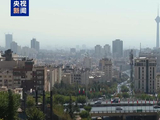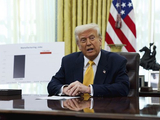U.S.-China Talks; Israel-Gaza Tensions; Arab-Islamic Unity; Eastern Europe Drone Incidents; China's Global Governance Advocacy; Regulation of Foreign Missions

U.S.-China Talks on TikTok: Diverse Narratives and Strategic Implications
Recent events highlight the ongoing negotiations between the U.S. and China over TikTok, with discussions taking place in Madrid. Xinhua reports a constructive dialogue aimed at resolving economic issues, including TikTok, with an emphasis on cooperation and reducing investment barriers. The Chinese side underscores the importance of mutual benefits and urges the U.S. to lift restrictions on Chinese companies.
Meanwhile, United Daily News reveals the potential extension of a tariff truce and the framework agreement on TikTok's U.S. operations, portraying the talks as progressing smoothly. The publication notes President Biden's upcoming conversation with Xi Jinping, suggesting it could foster broader trade agreements.
Sina also covers the Madrid talks, echoing Xinhua's narrative of a cooperative approach to resolving TikTok-related issues and promoting economic cooperation. The article emphasizes the strategic nature of U.S.-China economic relations and their global impact.
It appears that different publications stress varied aspects of the negotiations. Xinhua and Sina focus on the cooperative spirit and mutual benefits, likely aiming to project an image of China as a willing partner in global economic stability. In contrast, United Daily News provides a more nuanced view, highlighting the geopolitical implications of the talks and the potential for broader trade negotiations. This diversity in reporting underscores the complex nature of U.S.-China relations and the strategic narratives each side wishes to promote.
Escalating Tensions: Israel's Military Actions in Gaza
The recent military actions by Israel in Gaza have been reported across multiple media outlets, each providing distinct perspectives on the events. According to udn.com, Israel's air force launched a significant aerial assault on the Al-Ghefari tower in Gaza City following warnings to civilians. The report highlights that the strike was part of a broader Israeli ground offensive aimed at rooting out Hamas, with claims of surveillance equipment being installed by Hamas in the tower, although no evidence was provided to substantiate this.
Xinhua briefly notes the Israeli ground attack on Gaza City, emphasizing the entry of Israeli tanks into the city. This succinct report suggests a straightforward presentation of events without delving into the underlying motivations or implications, possibly to maintain a neutral stance.
Sina provides additional details, describing the large-scale air assault as the beginning of a new phase of military operations, employing various types of firepower. This portrayal indicates a significant escalation, framing the actions as a prelude to further military endeavors.
The narratives across these publications highlight varying focuses: udn.com offers a detailed account with potential geopolitical implications, Xinhua presents a factual, concise report, and Sina emphasizes the operational scale and future implications of the military actions. These differences may reflect each outlet's editorial priorities and target audience expectations.
Condemnation of Israel's Attack on Qatar: A Unified Arab-Islamic Response
Recent events highlight a significant diplomatic gathering in Qatar's capital, Doha, where the Arab-Islamic emergency summit convened to condemn Israel's recent attack. The summit's conclusive report, as covered by Xinhua, emphasized Israel's actions as a blatant infringement on Qatar's sovereignty and a violation of international law. It underscored the need for Arab and Islamic nations to unite against common challenges and threats.
Similarly, CCTV echoed these sentiments, reinforcing the narrative that Israel's military maneuvers not only undermine Qatar's autonomy but also disrupt international peace processes. Both reports praised Qatar's composed and rational response to the attack, highlighting its commitment to peace and stability.
These developments indicate a concerted effort by Arab and Islamic countries to present a unified front. The emphasis on collective security and shared destiny, as reiterated in both sources, reflects a strategic intention to bolster regional solidarity. While both publications share similar narratives, their consistent focus on unity and lawful measures underscores a broader geopolitical message aimed at rallying international support against perceived aggression.
Rising Tensions Over Drone Incidents in Eastern Europe
Recent events highlight the escalating tensions in Eastern Europe, particularly involving Russian drones entering NATO airspace. An article from Sina News reports on the incident where Russian drones violated the airspace of Poland and Romania, prompting NATO countries to respond with military readiness and diplomatic protests. The narrative emphasizes Poland's approval of NATO troop deployments on its soil as part of a broader military strategy termed the 'Eastern Flank Deployment'. This is seen as a permanent measure to bolster NATO's eastern defenses.
In contrast, the article from Sina News focuses on a specific event where Polish authorities destroyed a drone flying over government buildings, resulting in the detention of two Belarusian citizens. The coverage here is more localized, detailing the immediate security measures and ongoing investigations without delving into broader geopolitical implications.
These developments indicate varied intentions behind the publications. The first article seems to underscore the strategic military implications and NATO's response, possibly to highlight the alliance's solidarity and preparedness against Russian actions. Conversely, the second article's focus on the drone's destruction and detentions might aim to emphasize Poland's immediate security measures and law enforcement's effectiveness in handling such incidents.
Navigating Global Governance: China's Advocacy for Multilateralism
Recent events show an intensified call for reforming global governance, as articulated by Chinese leaders and echoed in various state-affiliated publications. The Qiushi Journal emphasizes the urgent need to reform global governance structures, citing historical challenges and the inadequacy of current systems established post-World War II. The article highlights China's proposal for a more equitable system that reflects the interests of developing nations, aligning with President Xi Jinping's vision of a 'community of shared future for mankind.'
These developments indicate a broader narrative, as seen in Xinhua's coverage, which reinforces the theme of multilateralism as a cornerstone of global governance. Xinhua underscores China's role in promoting multilateral platforms like the United Nations and the Shanghai Cooperation Organization, advocating for collective decision-making and shared benefits. The news highlights China's commitment to a cooperative international order, proposing that true multilateralism should replace unilateral actions and hegemonic practices.
The Qiushi Journal and Xinhua, both reflecting the Chinese government's stance, narrate the same theme with a focus on China's proactive engagement in global governance reform. Qiushi provides a historical context, stressing the deficiencies of existing systems and the need for inclusive representation, while Xinhua projects a forward-looking perspective, emphasizing the necessity of multilateralism and cooperation to tackle global challenges. It appears that both articles aim to position China as a leader in shaping a more just and effective global order, advocating for systemic changes that align with its strategic interests and vision for the future.
China's Regulation on Foreign Diplomatic Missions: A Unified Narrative
Recent developments show China's proactive approach in managing its nationals working in foreign diplomatic missions. Xinhua reports that Premier Li Qiang has signed a State Council order to promulgate the 'Regulations on the Management of Chinese Nationals Employed by Foreign Diplomatic Missions in China'. Set to take effect on January 1, 2026, these regulations aim to facilitate the duties of foreign diplomatic missions while safeguarding the legal rights of Chinese employees.
The regulations consist of 12 articles outlining general requirements, management responsibilities, and employment activities. They emphasize respect for Chinese laws by foreign missions and the legal protection of Chinese employees' rights. The Ministry of Foreign Affairs is tasked with guiding and coordinating the nationwide management of these Chinese nationals, involving various administrative levels.
It appears that China is standardizing the employment terms of its nationals in foreign missions, establishing a resource platform through the Ministry of Foreign Affairs to ensure compliance with service agreements and labor contracts. This effort underscores China's commitment to maintaining its citizens' rights while ensuring that foreign diplomatic actions align with national security and public interests. The news highlights a clear intent by Chinese authorities to reinforce the country's legal framework in international diplomatic contexts.



